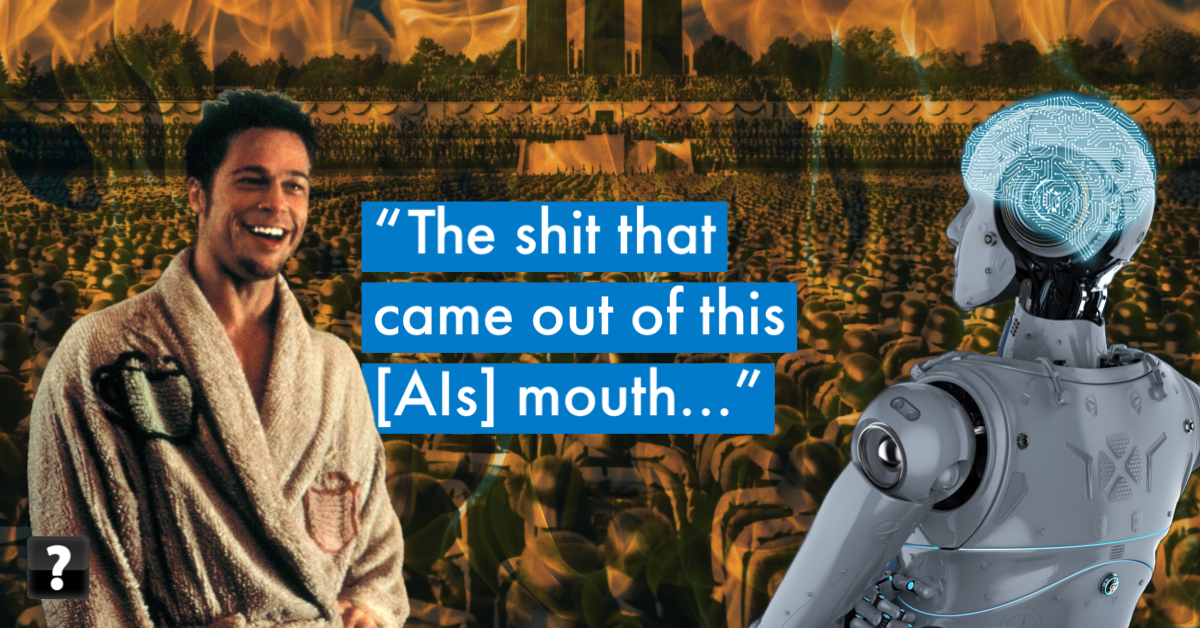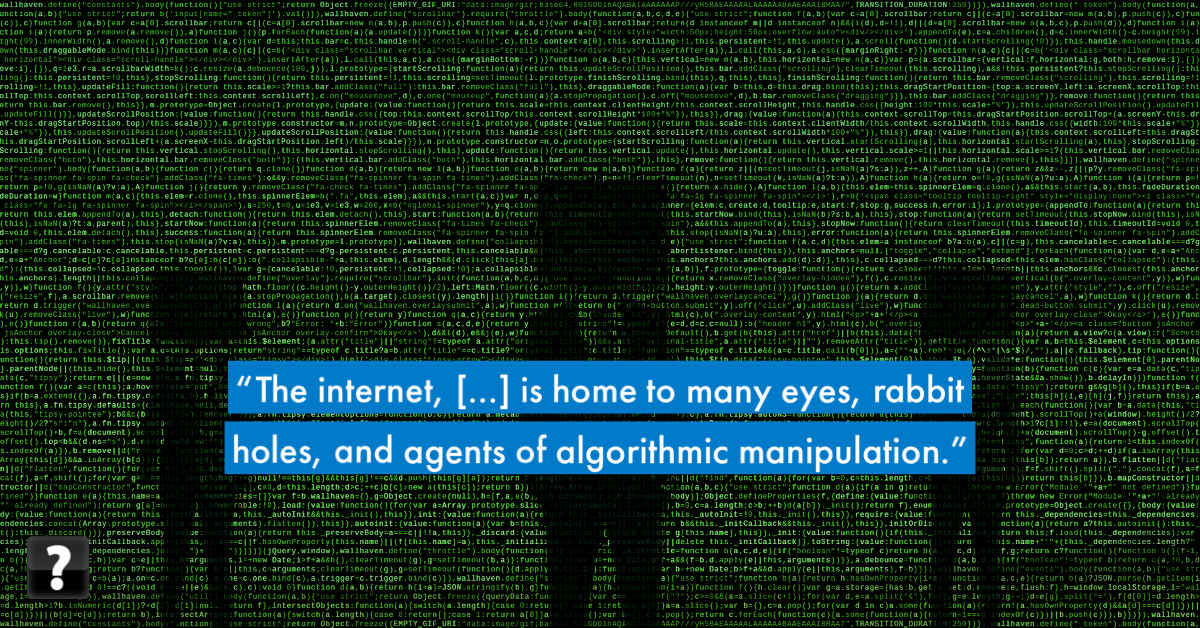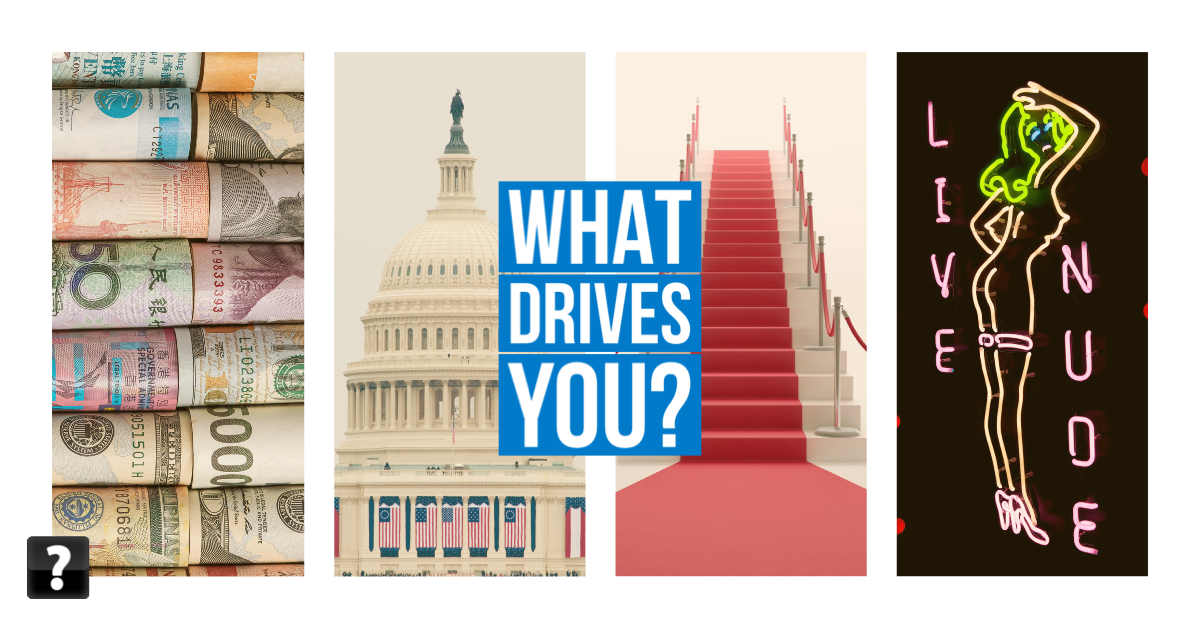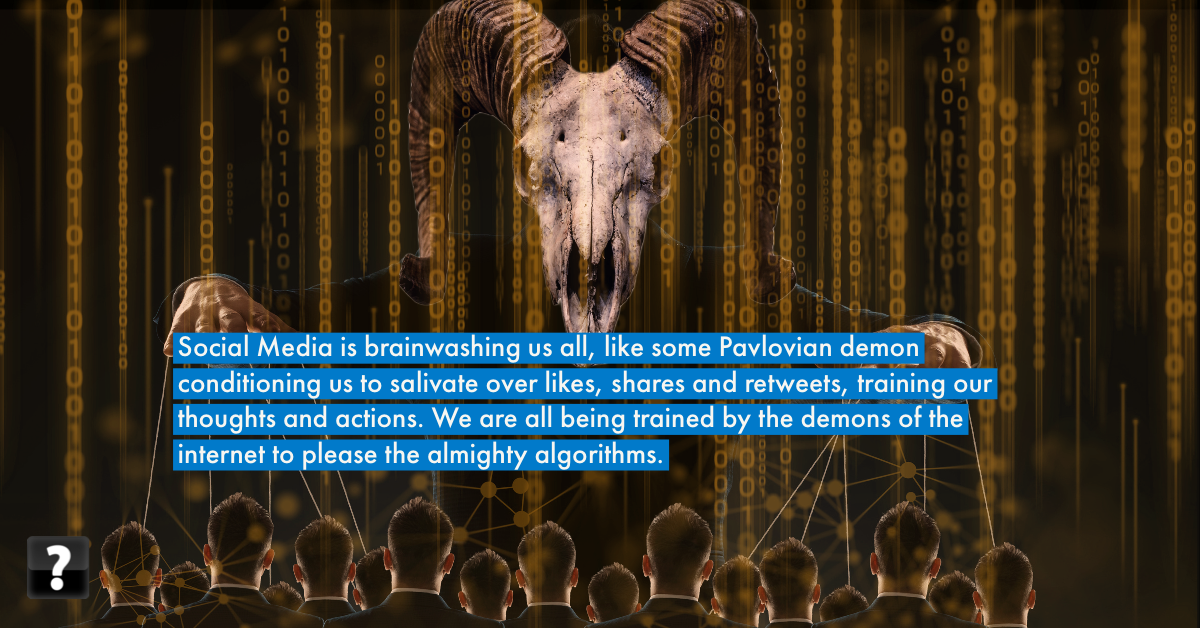You have no free speech — not because someone might ban your account, but because there’s a vast incentive structure in place that constantly channels your speech in certain directions. And unlike overt censorship, it’s not a policy that could ever be changed, but a pure function of the connectivity of the internet itself.
Sam Kriss, from The Internet is Made of Demons [damage.com], published on Damage
The Internet is Made of Demons is a fun article from a few weeks ago, published on Damage.com. It’s a roundabout review of The Internet Is Not What You Think It Is: A History, A Philosophy, A Warning by E. H. Smith. The review starts with this argument that Social Media is brainwashing us all, like some Pavlovian demon conditioning us to salivate over likes, shares and retweets, training our thoughts and actions. We are all being trained by the demons of the internet to please the almighty algorithms. Everyone is a content creator, not a person talking to other people, but a person talking at other people to generate views and sell ads.
No doubt. We all want people to value our creations. To validate our existence, to inflate our self-esteem. Why else would anyone post things on the internet?
The internet exploded, in large part, while I was in college as a way to connect with people IRL, a tool to enhance social contact not replace it. Applications like ICQ, AIM and many more allowed us to communicate when we were apart. Free campus internet allowed us to leave the messenger running when we were away from the dorm, in an era largely before people had laptops or cellphones. Napster was a tool to download music to play in your dorm for your IRL friends. But over the past two decades the internet has not just crept into more and more aspects of our daily life, it has replaced them. And for too many people this has lead to less real social activity.
[The Internet] simulates the experience of being among people
I can relate to this. There are so many “friends” on my social media that I am not really in touch with —setting aside people who “friend” or “follow” every person they ever meet or hear about, I’m talking about people I know or, at least, knew. The fact that I see their posts, that I know what is going on in their life, or at least that part of their life that they choose to share; I know people get married, go on holiday, have kids. Or, maybe, I see their comments on things others have posted, and I know their politics or, preferably, their sense of humor. It feels like I am “in touch” with these people. But, I’m not, not really. I haven’t seen most of these people in years —or in decades— I have no real connection to them. Just a simulation of a connection. And this model of social media seems to be fading as it evolves from conversations to one-way self-advertisement.
Part of this, this feeling that I’m informed by not connected is that many, if not most, of the people on my social media live in other countries; the US, Japan, Sweden, England, Italy, Australia… I’m very bad about maintaining actual contact in real life, in IRL. I don’t call and I don’t even text or email people. I tied to get better at it, I set some reminders to reach out to a few people who live overseas… And I kept finding myself saying “I should call/text so-and-so today.” But always at the wrong time and I was too tired to do it or just forgot it later.
I can barely keep in contact with people who are physically nearby. My work colleagues or ex-work colleagues who live here in Singapore, we go out regularly when we are in the same company, but then when they leave it become more and more seldom… Some of these people are “friends-of-convenience,” meaning we would not naturally be friends outside of the shared experience of work… but others are people I think would be friends regardless of work —true friends. I was better at it during the height of the COVID lockdowns, I would randomly call groups of people for “virtual coffee” sessions to replace the in person coffee breaks at the office. I don’t even do that any more… I’m too lazy. Should start again.
I do have to admit that I have been able to use social media to create moments of serendipity that would not have happened without it: three times I have been in foreign countries for work or holiday and found out, via social media, that someone from my past was also there and we have been able to meet up. This would not have happened without social media.
But moving out, this sort of replacing IRL interaction with simulated online interaction is not the real point of the review. The review is more concerned that the form of “communication” we have through the internet is destroying our empathy, our humanity to each other:
As more and more of your social life takes place online, you’re training yourself to believe that other people are not really people, and you have no duty towards them whatsoever.
The reviewer cites stats that younger, more internet native generations show reduced empathy when tested. I can’t agree or argue with this, I don’t have enough young or IRL friends to judge it. But I don’t disbelieve it.
From there the review goes a off the rails, talking about books on demonology and medieval cryptography. Seemingly to make a point that the internet is a natural evolution of our need to communicate widely with others across distance claiming “telecommunications” is as old as humanity. I told you it was fun. But I think the key points are those at the beginning about simulating social connection and causing us all to focus on feeding the algorithms rather than helping to deepen friendships.




